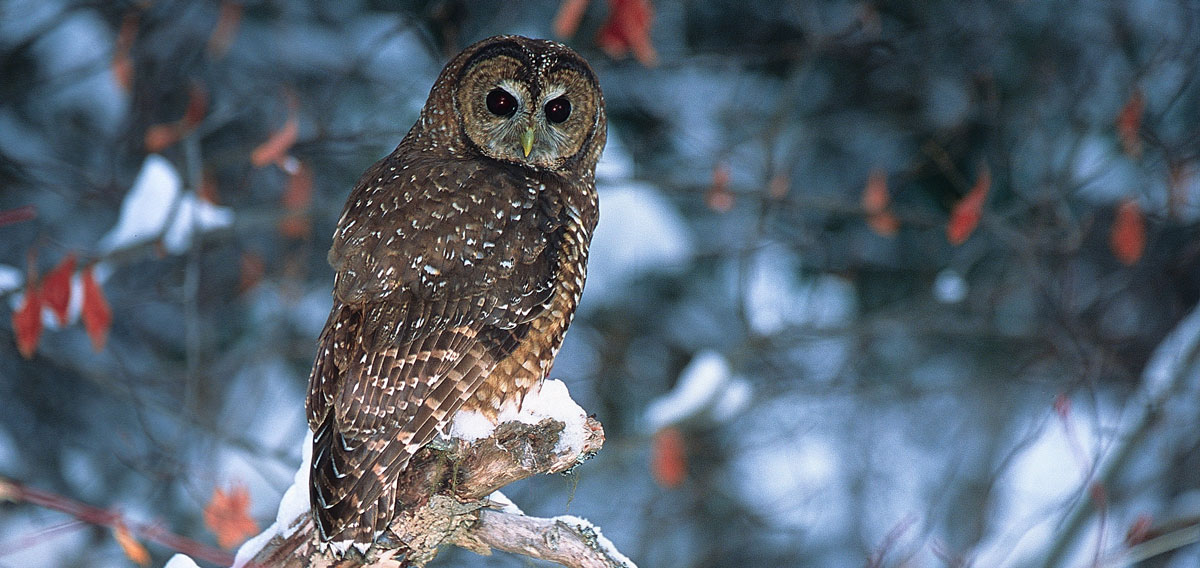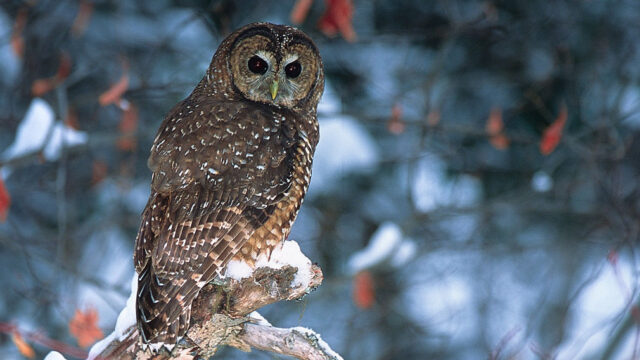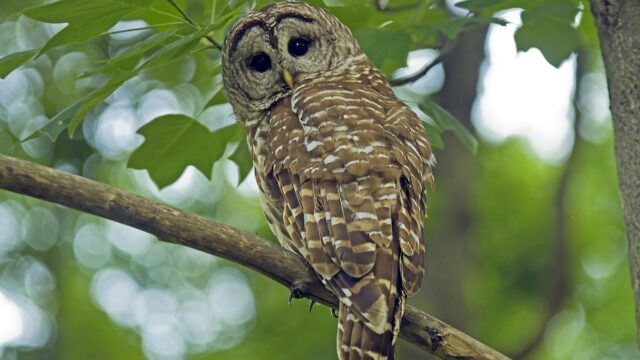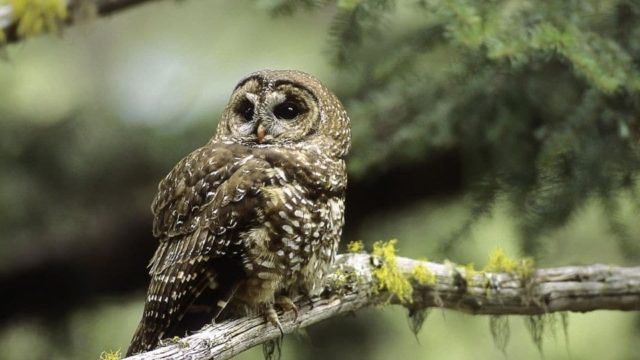Before industrial logging in British Columbia, there were an estimated 500 pairs of spotted owls living in the old growth forests in southwest B.C. As of May 2023, there is only one known surviving owl in the wild. Two captive-bred owls released last fall were found dead.
This dramatic decline of the species, led Ecojustice to send a letter to the federal Minister of Environment and Climate Change – Steven Guilbeault in October 2020, demanding he recommend emergency order protections under the Species at Risk Act.
On behalf of Wilderness Committee, Ecojustice argued that decades of provincial mismanagement had left spotted owls without legal protection and decimated the old-growth forests where they once lived.
In February 2021, thanks to the leadership of the Spo’zem First Nation and with support from Ecojustice and Wilderness Committee, the provincial government announced a one-year halt to all logging within the forests of Spô’zêm First Nation territory, specifically the Spuzzum and Utzlius watersheds. The protection of these watersheds was extended to February 2023. These watersheds are home to the last known wild spotted owl in Canada.
Despite the short-term win, no permanent solution was proposed by the provincial government to protect spotted owls and their habitat.
That’s why in October 2022, Ecojustice, on behalf of Wilderness Committee, once again called on the federal Minister of Environment and Climate Change to fulfil his legal responsibility to protect this species and their habitat by recommending an emergency order to protect the habitat necessary for spotted owl to survive and recover.
In February 2023, Minister Guilbeault formed the opinion that the species faced an imminent risk to its survival and recovery. Guilbeault determined that 2,500 hectares of spotted owl habitat, necessary for the species’ recovery, was at risk of being logged within the year. Ecojustice and the Wilderness Committee urged the minister to recommend to cabinet the issuing of an emergency order to immediately stop all logging in the critical habitat of the spotted owl. However, the minister delayed.
So, in June 2023 as logging operations got underway in spotted owl habitat, Ecojustice on behalf of Wilderness Committee once again filed a motion for a court hearing to force the minister to recommend to cabinet the immediate issuing of an emergency order to halt logging.
October 2023, on the eve of the scheduled court hearing to argue for the immediate recommendation of the emergency order, Federal Minister of Environment and Climate Change Steven Guilbeault finally recommended cabinet make an emergency order, however cabinet refused to issue one. Ecojustice proceeded to the hearing nonetheless, with the intention of getting clarity on whether the minister’s eight-month delay in recommending this emergency order to cabinet is permitted under the federal Species at Risk law. Currently, we await the judge’s ruling on this matter.





